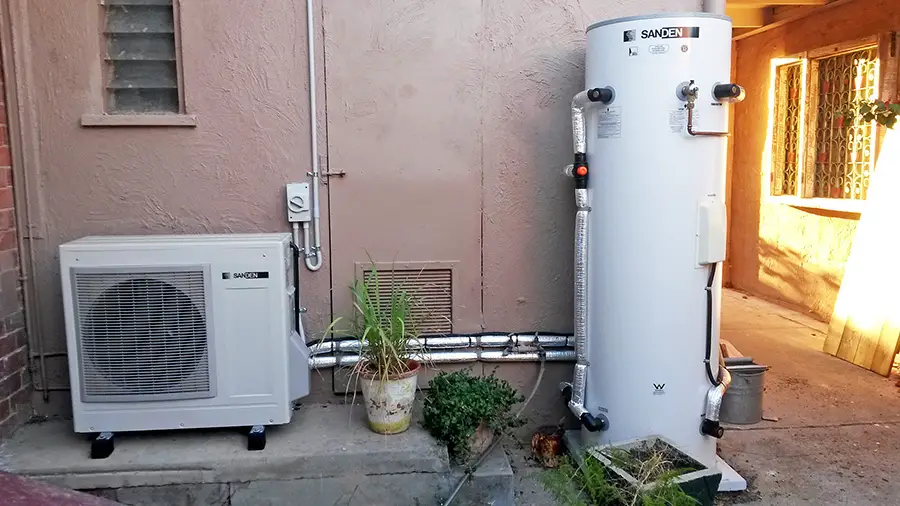When it comes to heating water, homeowners are increasingly turning to innovative and energy-efficient solutions. One such solution gaining popularity is the heat pump hot water system. This technology offers a sustainable and cost-effective way to heat water for various household needs. In this article, we will delve into the world of heat pump hot water systems, exploring their benefits, functionality, and why they have become a preferred choice for homeowners seeking reliable warmth.
Understanding Heat Pump Hot Water Systems
Heat pump hot water systems work on the principle of extracting heat from the surrounding environment and transferring it to the water. Instead of relying on traditional heating elements, these systems utilize a heat pump unit, which extracts thermal energy from the air or ground and transfers it to the water in an efficient manner. This process not only saves energy but also reduces greenhouse gas emissions, making heat pump hot water systems an environmentally friendly choice.
Benefits of Heat Pump Hot Water Systems
Heat pump hot water systems offer numerous advantages over conventional water heaters:
- Energy Efficiency: Heat pump hot water systems are significantly more energy-efficient than traditional water heaters. By extracting heat from the environment rather than generating it, these systems can provide hot water while using up to 65% less energy.
- Cost Savings: With their exceptional energy efficiency, heat pump hot water systems can help reduce energy bills. Although the initial installation cost may be higher than that of conventional systems, the long-term savings on energy expenses often make up for the upfront investment.
- Environmental Sustainability: As heat pump hot water systems consume less energy, they contribute to a lower carbon footprint. By reducing greenhouse gas emissions, these systems help combat climate change and promote a sustainable future.
- Versatility and Flexibility: Heat pump hot water systems can be installed in various locations, both indoors and outdoors, depending on the available space and specific requirements. They can be integrated into new constructions or retrofitted into existing homes, providing flexibility for homeowners.
- Reliable Performance: Heat pump hot water systems are designed to deliver consistent hot water supply throughout the year. They are equipped with advanced controls that optimize performance and ensure reliable warmth whenever needed.
How Heat Pump Hot Water Systems Work
Heat pump hot water systems operate through a series of steps:
- Heat Extraction: The heat pump unit absorbs thermal energy from the air or ground using a refrigerant. The heat pump extracts heat even in colder climates, making it suitable for year-round use.
- Heat Transfer: The extracted heat is transferred to the water through a heat exchanger. As the refrigerant releases its thermal energy, it condenses back into a liquid state.
- Water Storage: The heated water is stored in a well-insulated tank, ready for use whenever required. The storage tank ensures a constant supply of hot water and minimizes heat loss.
- Control and Efficiency: Modern heat pump hot water systems feature advanced controls that monitor and optimize the system’s performance. These controls help maintain the desired water temperature while maximizing energy efficiency.
Considerations for Installation and Maintenance
When considering a heat pump hot water system, it is important to keep the following points in mind:
- Proper Sizing: To ensure optimal performance, the heat pump hot water system should be appropriately sized based on the household’s hot water demands. Professional installation providers can help determine the right size for your specific needs.
- Installation Requirements: Heat pump hot water systems may require specific electrical and plumbing requirements. It is crucial to hire a qualified installer who can handle the installation process with expertise and in compliance with local regulations.
- Regular Maintenance: Like any other mechanical system, heat pump hot water systems require periodic maintenance to ensure their longevity and efficiency. Regular check-ups, filter cleaning or replacement, and inspections can help keep the system running smoothly.
Conclusion
Heat pump hot water systems offer an energy-efficient, cost-effective, and environmentally friendly solution for heating water in homes. With their ability to extract heat from the environment and provide reliable warmth, these systems are gaining popularity among homeowners. By choosing a heat pump hot water system, you can not only enjoy significant energy savings but also contribute to a greener and more sustainable future. Invest in a heat pump hot water system and experience the benefits of efficient and reliable warm water for your everyday needs.


